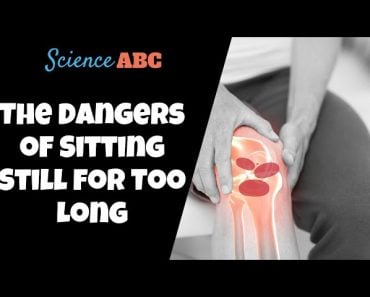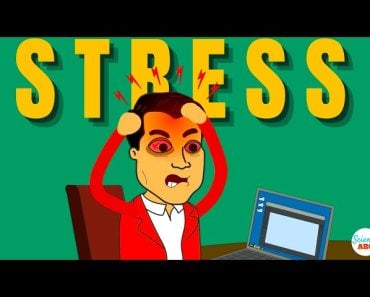Table of Contents (click to expand)
The side effects of staying in bed all day include development of bedsores and body aches, especially in the lower back. Lying in bed all day is also associated with an increased risk of stress and depression, and some other psychological and cardiovascular ailments.
Few people in the world leave their bed as soon as they hear the alarm, let alone before it! Lazing around in bed has ailed humankind for centuries, but it is probably much easier for a vast majority of us to spend an entire day in bed, thanks to technology. You have your phone to entertain you and if you have a home connected to a voice activated system, then you don’t even have to get up to change the lighting or play some music.

I must admit that I snooze the alarm more than I should, so much so that I sometimes wish someone would pay me to stay in bed. Well, this dream came true for Drew Iwanicki when he volunteered for a study conducted by NASA.
NASA Experimented To Study The Effects Of Laying In Bed For Days
In 2014, NASA conducted a study to find out what would happen to human bones and muscles in space. They simulated the conditions of space by making their volunteers lie down with their legs up at an angle for 70 days. Drew Iwanicki and other volunteers could not get up, except for a 30-minute window where he could prop himself up on his elbows to eat!
Although the study—titled “CFT 70 (Countermeasure and Functional Testing in Head-Down Tilt Bed Rest Study)”—earned Drew Iwanicki a paycheck of $18,000, it was no walk in the park (excuse the irony).
The study found that if a person lies down with their legs raised at an angle, more blood will flow to their head, making their face look puffy. After 70 days, Drew would pass out after standing straight for a mere 15 minutes. He also lost 20 percent of his total blood volume.
Though most of us don’t lie in bed for 70 days, we have to ask is the habit of lying around in bed for hours at a stretch bad for our health too?
Recommended Video for you:
Is It Bad To Stay In Bed All Day?
Of course, it is!

It is not just this particular position that can be bad for the body, but too much bed rest in any position can be very harmful to the overall well-being of an individual.
Most of us are rarely motionless and sedentary when we lie down, even if we’re asleep. We naturally move a little by twitching, turning, or shifting your weight when one position becomes uncomfortable. This helps encourage blood flow.
But, when people can’t move, either because of a disability, old age or medical condition, the lack of any movement can cause pressure ulcers, more commonly known as bedsores. Blood cannot circulate adequately to the affected areas, leading to tissue damage which causes the sores.
There are a few different stages of bedsores; if bedsores hit Stage 4, then they can negatively affect bones. In extreme cases, bedsores can even kill people. This is why nurses continually change the position of paralytic patients.
Side Effects Of Staying In Bed For Too Long
But assuming you are asking this question to feel less guilty being indolent, lying in bed for too long does have other ill-effects.
Laying down for too long and too much can weaken muscles. Muscles support your skeletal system, and weak muscles can lead to weaker joints. In fact, research shows that bed rest is not effective in treating lower back pain. According to an analysis made in 1995, the researchers found that performing routine activities so long as they don’t cause pain was a more effective treatment for back pain than bed rest or even certain exercises.
While some bed rest can make people suffering from back pain feel better, too much bed rest can prove to be counterproductive. This is because it results in the weakening of muscles, including the ones that support the backbone.
Surprisingly, people can also develop constipation and other gastrointestinal problems when muscles lose their conditioning and tone.
Moreover, the inactivity associated with staying in bed for long hours increases the risk of damaging the veins (especially those of the pelvis and legs) and developing blood clots. This situation can also lead to a deadly pulmonary embolism condition if the clot breaks away and enters the lungs.
Bed Rotting And Mental Health
Our mental health and sense of well-being also take a hit due to being confined to bed. Research that studied the psychological effects of bed rest over a 20 day period in 9 young males. They found, through Zung’s self-rating depression scale and a General Health Questionnaire, that the participants depression and neuroticism increased as they remained in bed rest.
Multiple studies conclude that oversleeping and the urge to remain in bed could hint at a need to addressed some mental health concerns. The occasional need to rest after a hectic week is normal, but if it becomes a recurring behavior, then help should be sought.
Psychological and physical ill-effects of extended periods of bed rest have also been found in pregnant women who were sent to bed due to complications in pregnancies. These effects included depression, anxiety, headache, muscle atrophy, and weight loss.
A Moderate Amount Of Bed Rest Good For You
If taken in correct amounts, bed rest is not all bad. On the contrary, it can be a good thing, especially for those who have suffered from a concussion or some other brain injury, as it helps restore the brain’s normal activities.
As it turns out, bed rest is not inherently evil; it only becomes so when it’s not regulated. After all, too much of anything is bad.
Do yourself a favor, and don’t laze around in bed unnecessarily for extended periods of time. Get out and see the world!
Also, if you are curious about why sitting in the same position even for an hour makes you feel uncomfortable, but sleeping for a good seven to eight hours doesn’t, we have answered it for you. Check this article out!
References (click to expand)
- Why oversleeping is just as bad as sleep deprivation.
- Too little sleep, and too much, affect memory.
- Liu, Q., Zhou, R., Chen, S., & Tan, C. (2012, December 17). Effects of Head-Down Bed Rest on the Executive Functions and Emotional Response. (M. G. Frasch, Ed.), PLoS ONE. Public Library of Science (PLoS).
- Changes in mood status and neurotic levels during a 20- ....
- Bed rest for back pain? A little bit will do you..
- Malmivaara, A., Häkkinen, U., Aro, T., Heinrichs, M.-L., Koskenniemi, L., Kuosma, E., … Hernberg, S. (1995, February 9). The Treatment of Acute Low Back Pain — Bed Rest, Exercises, or Ordinary Activity?. New England Journal of Medicine. Massachusetts Medical Society.













